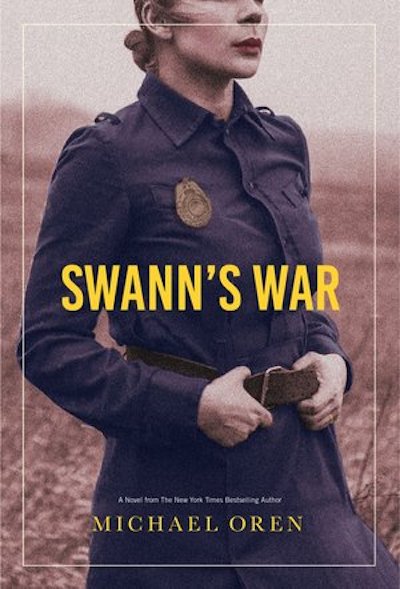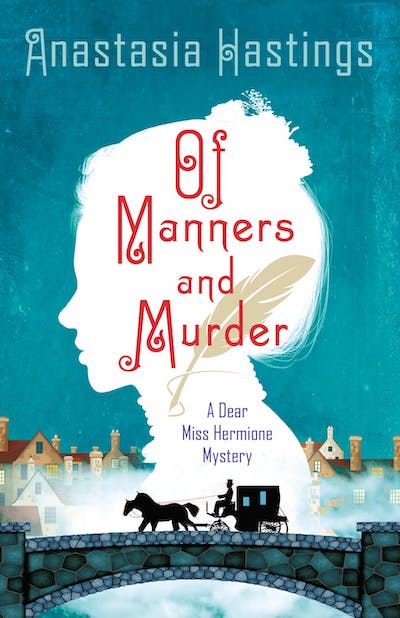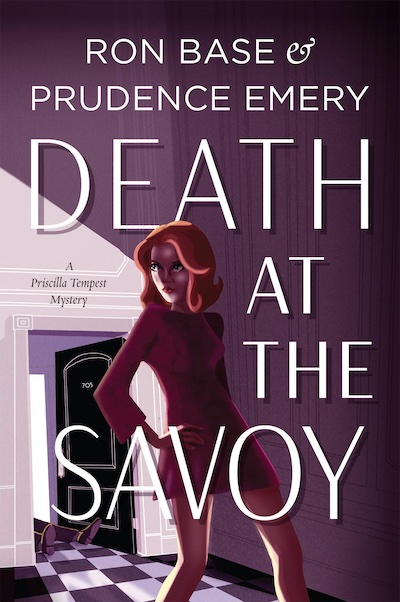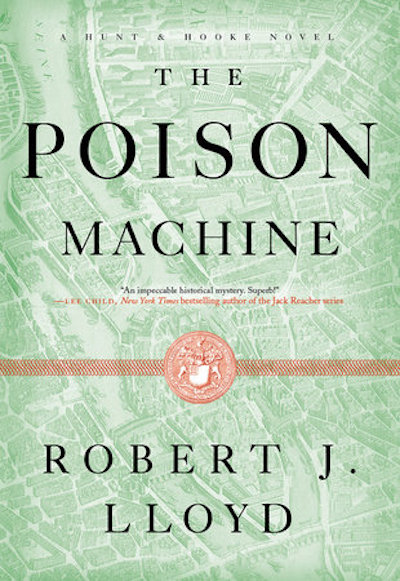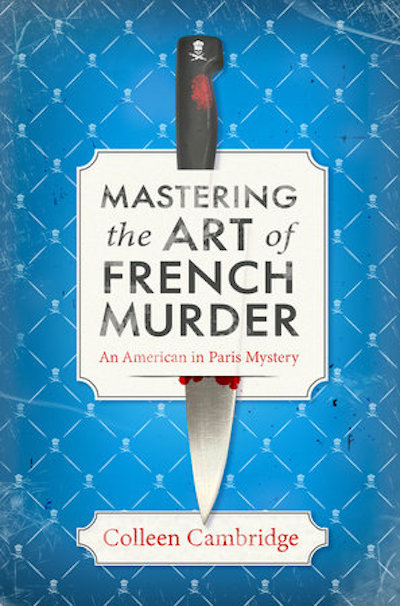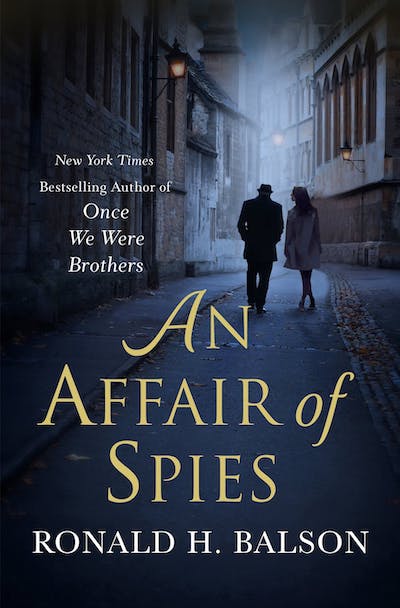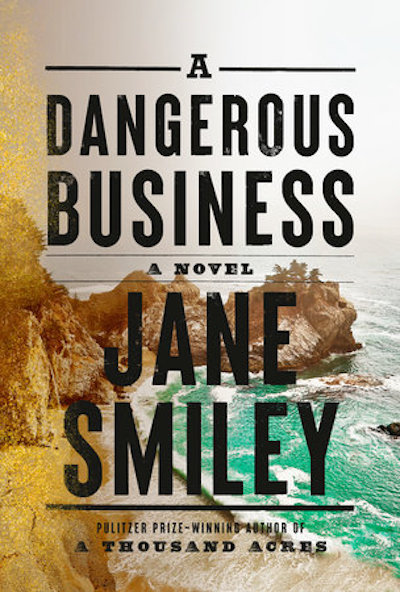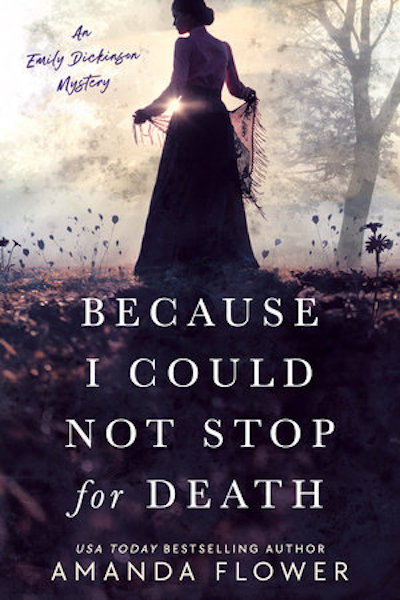We’re deep into the Second World War, and Archie Swann—the police officer on Fourth Cliff, a fishing island off the Massachusetts coast—is fighting in the Pacific theater. But his wife, Mary Beth, herself a cop trained by the Boston Police Department, has stepped into his position. While Archie was beloved, Mary Beth is loathed, largely because of her gender, and the easiest of tasks is a struggle. While the island has traditionally seen little crime—settling fights between drunk fishermen and resolving domestic disputes seemed to be the bulk of the work—things have changed under Mary Beth’s watch. The body of a soldier, who lived in a camp for Italian POWs on the island, is hauled up from the sea by fishermen, a murder that creates unrest among both islanders and prisoners. When that murder is followed by others, Mary Beth, whose supports are a doctor who is untrained as a coroner and a deputy who is intellectually disabled, turns to the only real help she can find: organized crime from the mainland. But the real story here is the internal one: Mary Beth’s loneliness, her longing for Archie, her need to always maintain a tough outer shell, her battle against feeling like a failure. Novels about women in the War have blossomed in the past few years, but few have the grittiness, honesty, and authenticity in emotion, language, and detail of Swann’s War.
Historical
“The right choice can be made to seem impossible, especially for a woman on her own,” learns “spinster” Violet Manville during her work as Miss Hermione, agony aunt for A Woman’s Place magazine. The usual Miss Hermione is Violet’s actual aunt, Adelia Henrietta Georgina Tylney Manville. When the feisty lady sets off from England for the Continent with her gentleman friend, she reveals that she is the mysterious author of the popular column and helpfully sets the shocked Violet up with folders of advice that have labels such as “Comportment,” “Mourning,” and “Mothers in Law.” Violet makes the right choice for herself, breaking out of her life as the studious, ignored, half-sister of the beautiful, flighty Sephora, who has an inheritance, which for a woman in 1865 is everything. Being unmarriageable frees Violet from some of the social duties Sephora adores, allowing her to visit a young woman who wrote to Miss Hermione for help. But when Violet reaches Ivy Armstrong’s village, she finds a very different scene from what she expected, and a murder investigation is soon afoot. Further choices abound, with Hastings keeping her hero within the boundaries of what a Victorian lady can do, while showing what life is like within those strictures and what happens when a woman has her freedom of choice stolen. Readers will empathize with Violet and even with her sad, social-climbing sister, both of whom are doing their best with what life’s dished out. Funny at times, this series debut is also an adventurous and thoughtful look at a time when women’s lives were on the brink of change. And it’s a puzzling whodunit to boot.
The supposed hero of this book is Captain Edward Heywoud, a paragon of colonial manliness who “[trails] ambition and resolve.” For years, he’s climbed the world’s highest peaks, sometimes with his photographer wife, Viola Colfax. Now, in 1910, he and long-time climbing companion James Watts and several other hardy men and their sled dogs are tackling the ultimate challenge: to reach the South Pole. And not just make it there, but do so before a Norwegian expedition claims the glory for its king rather than England’s. In a parallel struggle is Viola, who also isn’t the book’s hero, fascinating though she is. She’s in love with Edward, although he disapproves of many of her activities and is fond of telling her what she will do, but she also loves the gentler James, and the two are having an affair. While the men are away—a voyage chronicled in gripping and often horrible detail by author Lazaridis—Viola takes on the challenge of documenting the suffragette movement, a project interrupted when the men return and their photographs lead her to think their triumph is a fraud. As to the hero here, it’s not a particular person but the bodies described in this gorgeous and devastating work: James’s and Edward’s in Antarctica as they compare the calories they use against the remaining food and end up eating their dogs; the hunger-striking suffragettes, whose emaciated, police-battered bodies feature in a fascinating project by Viola; the steadfast figure of Mary, Edward and Viola’s maid, who indirectly makes the expeditions possible but is taken for granted by the family; and the body of the Earth, which tries to kill the men even as it enables their fame. The frustrating, brilliant Viola is one of my favorite characters, and this book one of my favorite reads, in a long time.
We’re in the mad, mod, mini-skirted world of London, 1968—the height of the swinging sixties. Where better to catch all the action than from a perch at the world-famous Savoy Hotel? Nowhere, unless you are young Priscilla Tempest, head of the Savoy’s press office, and arrive at work only to discover that your date from the previous night—Mr. Room 705—has been found quite dead. Odd, since when you left him he was a little too alive. Plus, it turns out that he’s a bit of an arms dealer, and not the caviar dealer he claimed. So begins Prudence’s crusade to clear her name, if not her reputation, keep her job, and maybe even stay alive. This book is outrageously funny, peppered throughout with all-too-realistic cameo appearances from the likes of Noël Coward, Richard Burton, Elizabeth Taylor, and even a member of the royal family. Add to the mix a Soviet spy, a louche but handsome reporter, a fanatical monarchist from Scotland Yard, a Spanish gigolo, and serve it all accompanied by a nice flute of Bucks Fizz—that’s what the British call a Mimosa. And who said you don’t learn from fiction? Anglophiles, lovers of comic crime fiction, and anyone in need of a break from the present day will adore this book. I’m off to The Carlyle for a Fizz myself, don’t bother ringing until Book 2 is out.
When Lloyd first introduced Harry Hunt in The Bloodless Boy (a firstClue starred review and a New York Times “Best New Historical Novel of 2021”), the 17th-century physicist was Robert Hooke’s assistant and the investigator of the gruesome murders of London boys. Here Hunt’s fortunes are doing both worse and better. On the glum side, we see his humiliating failure to replace Hooke as Curator of Experiments at the Royal Society for the Improving of Natural Knowledge, with Lloyd’s almost-tactile picture of academic politicking giving the book a strangely modern feel. Hunt still finds prestigious work though: when the skeleton of a dwarf is found, Queen Catherine requests Hunt as investigator. Captain Jeffrey Hudson was “her” dwarf, and Hunt is tasked with finding out both who killed him and who the still-living man is who claims to be Hudson but is taller. The physicist’s urgent work this time (“the body will not keepe”) takes him far from the Thames shores he clung to in The Bloodless Boy. France is a major setting in the book and a final lengthy and very exciting scene takes us to the Queen’s Catholic Consult, where restrictions against the much-loathed group will be discussed. Lloyd again succeeds in creating an immersive look at the various layers of life his hero encounters, one that draws enough on real events to treat readers to intriguing history, but that also adds just the right fictional elements to keep the plot rich. Another winner
Cambridge’s newest series has everything going for it. A magical setting: Paris awakening after World War II, with its fabled lights returning and food overflowing in the marketplaces. A great lead: sophisticated Tabitha Knight, who’s abandoned Detroit, and a dull fiancé, to live with her older French uncle and his longtime partner. Plus some star power: Tabitha’s buddy and neighbor, the young Julia Child, a student at Le Cordon Bleu who can always be found in her kitchen, stuffing some poor bird. Cambridge does a brilliant job capturing Julia with her quirky diction, fluty enunciation, and joie de vivre. But some of that joie flies out the window when a young woman is found dead in Julia’s basement; the murder weapon is a knife from Julia’s kitchen; and a note, in Tabitha’s handwriting, is found on the woman’s person. Tabitha—every bit the modern, independent woman—heads off to track down leads, break into the victim’s apartment, and befriend an American theater group, all the while drawing the ire—and maybe admiration?—of the taciturn, but so very handsome, Inspector Merveille. A first-rate traditional mystery with strong characterization that is certain to appeal to a broad readership, especially fans of Jacqueline Winspear, Rhys Bowen, and Cambridge’s own Phyllida Bright series.
It’s 1943, and U.S. Army Sergeant Nathan Silverman is preparing to head back to Germany, his homeland, to fight the Nazis and, he hopes, find his close-knit Jewish family still alive. He’s one of the “Ritchie Boys,” members of a real WWII army unit made up of Germans and Austrians who were trained in intelligence and sent back to Europe as spies. But his days at Camp Ritchie are interrupted when Uncle Sam orders him to New York City to prepare for a different mission. Nathan has a valuable connection: his father is a physicist with the Nazi equivalent of the Manhattan Project, and the allies can use Nathan to find out how close Germany is to building a nuclear bomb. One problem: Nathan knows little about physics, but the army has taken care of this. His partner on the trip will be an American physicist, Dr. Fisher, whom Nathan is surprised to find is a young woman rather than the aging male academic he expected. The setup is absorbing on its own, with Balson (winner of the National Jewish Book Award for The Girl from Berlin) providing actual details about the race on both sides of the Atlantic to make a devastating weapon. Once the pair heads off, the action doesn’t disappoint either, at one point involving the most audacious plan imaginable to trick the enemy. There are sad moments and romantic ones here, but overall this is one nailbiting espionage scene after another, and perfect for fans of the large World War II spy genre.
Few know that one of Jane Smiley’s earliest works, published in 1984, was a mystery called Duplicate Keys set in contemporary Manhattan. Here, Smiley returns to crime fiction, although now we are in a completely different locale: Monterey in the mid-19th century. Eliza Ripple moves from Kalamazoo to Monterey with her husband, who promptly gets killed in a bar fight, leaving her broke and unemployed—but hardly sad at her piggish husband’s demise. Days later she’s recruited by Mrs. Parks to join her brothel, and with no other resources, agrees. Mrs. Park runs a tight ship: the women see only one or two clients a day; have physical protection, in the form of a bouncer; and are able to ban men they deem risky. Throughout the book, it’s women who keep each other safe, whether through friendships or the environments they create. And for the first time in her life, Eliza has financial security. All is as well as can be expected until Eliza realizes that young women in Monterey are disappearing, and discovers their bodies in a creek outside of town. She pairs up with her buddy Jean, also a sex worker and quite likely a lesbian—she’s got a terrific wardrobe of menswear—and the two women use every resource they have, from their clients to Edgar Allen Poe’s stories of detective C. Auguste Dupin, to discover who is murdering the women of Monterey. Smiley takes time to describe the wild west and the magical beauty that surrounds her characters. But ever present is the vulnerability that women face and the need to take matters into their own hands.
Most of us are familiar with the kidnapping of Charles and Anne Morrow Lindbergh’s baby, Charlie, in 1932, which was known as “the crime of the century.” So what can a fictionalized version of the events offer readers today? A whole lot more, it turns out. Fredericks has Betty Gow, the baby’s nanny, narrate this tale, which begins with Betty’s arrival in Detroit from Scotland—in pursuit of love gone wrong—and ends several years later with her permanent return to Glasgow. Kudos to Fredericks for creating in Gow such a hugely compelling character: smart, introspective, full of humor, a loving nanny. She’s also a terrific social observer, watchful of class distinctions, and all too aware of the inequality of the sexes. The first third or so of the book builds towards the abduction of Charlie—it’s incredibly nerve racking—while the middle third is centered on the messy aftermath of the crime: the frenzied press, the myriad ransom notes, the continual interrogations by detectives. In the final third, the narrative builds again as Betty returns from Scotland to testify in the trial of Bruno Hauptmann, who was eventually convicted and electrocuted, and the courtroom drama that unfolds is nothing less than brilliant. As fans of the Jane Prescott mysteries can testify, Fredericks is especially adept at historical settings, and this book doesn’t disappoint. The Lindbergh Nanny can cross-over in all kinds of directions, and should appeal to readers of crime fiction, historical fiction, women’s fiction and those just needing a solid read. Librarians: watch the holds list on this one.
From Sir Francis Bacon and Eleanor Roosevelt to Walt Whitman and Queen Elizabeth, famous people often make excellent amateur detectives. This volume introduces Emily Dickinson as sleuth. Enigmatic and reclusive, an iconoclast and a feminist, Emily lived in America during a time of enormous change and unrest. One of this country’s greatest poets, Emily has fascinated generations—and Flower does a wonderful job of introducing the 25-year-old Emily, years before she withdraws from most social contact. Here we enter Emily’s world through her family’s new maid, Willa Noble, who soon strikes up a cautious friendship with the unusual Emily. When Willa’s brother Henry is killed in the town stables, Willa turns to her new friend for solace, and eventually help. She believes that Henry was murdered, and Emily is quick to join the investigation as the two are drawn out of women’s traditional spheres and into the dark underbelly of Amherst. The book is rife with references to class and race, abolition and the Underground Railroad, yet the author manages to avoid tropes such as that of the white savior. Flower is an accomplished mystery author who moves the story along at a perfect pace while immersing us in the complexities of Emily and her time. A gem for historical-mystery fans.

